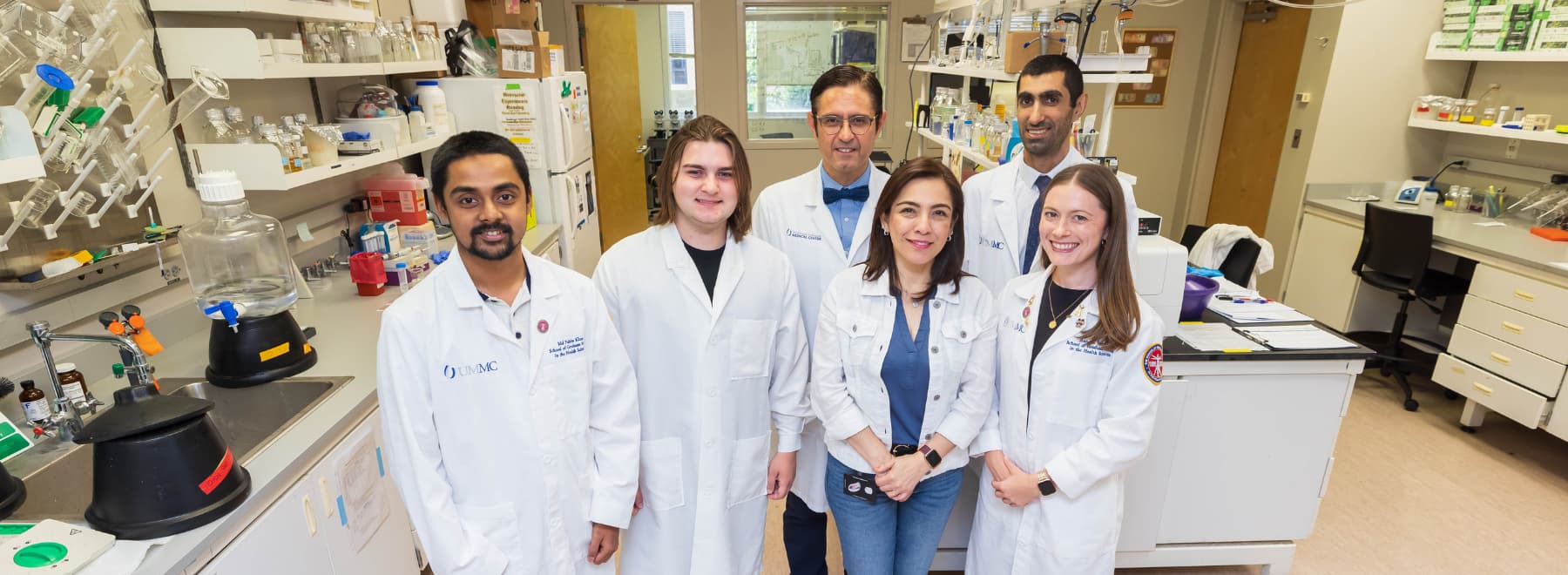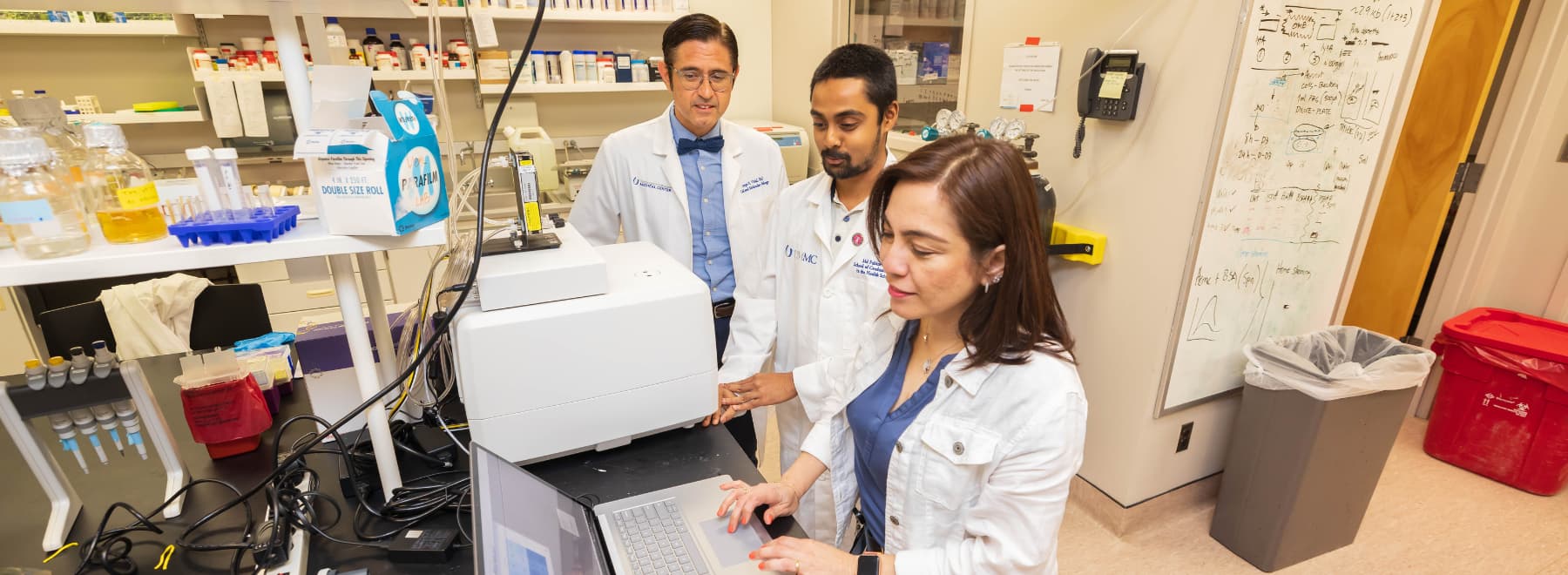

Investigators
Past Research Project Leaders
Project 2- Molecular characterization of hemoproteins targeted by S. pneumoniae to cause cell death
| Jorge Vidal, PhD Associate Professor, Department of Cell & Molecular Biology jvidal@umc.edu |
Streptococcus pneumoniae (Spn) colonizes the lungs leading to million cases of invasive pneumococcal disease (IPD) and ∼1 million deaths worldwide annually. Spn produces hydrogen peroxide (Spn-H2O2) that causes cytotoxicity and it is essential to cause IPD. The pathophysiology of IPD includes subcellular mitochondrial damage, and apoptosis in a variety of cell types. Apoptosis in cell cultures, and in an animal model of Spn pneumonia, required of H2O2 but details of the molecular mechanism have not been studied. We demonstrated that Spn-H2O2 oxidizes hemoproteins including hemoglobin and cytochrome C, the latter a key molecule triggering apoptosis, releasing heme. Since mitochondria are essential for life, and the release of cytochrome C from the mitochondria induces cell death, we hypothesize that oxidation of intracellular hemoproteins, catalyzed by Spn-H2O2, drives the pathophysiology of IPD. Molecular physiological, genetics, and biochemical approaches, leveraged by the Molecular Center of Health and Disease (MCHD), will be utilized to assess this innovative hypothesis. Dissecting the molecular mechanism will provide us with new targets for interventions to reduce the burden of pneumococcal disease.



